Question And Answer
Publications
Articles, publications, books, tools and multimedia features from the U.S. Institute of Peace provide the latest news, analysis, research findings, practitioner guides and reports, all related to the conflict zones and issues that are at the center of the Institute’s work to prevent and reduce violent conflict.
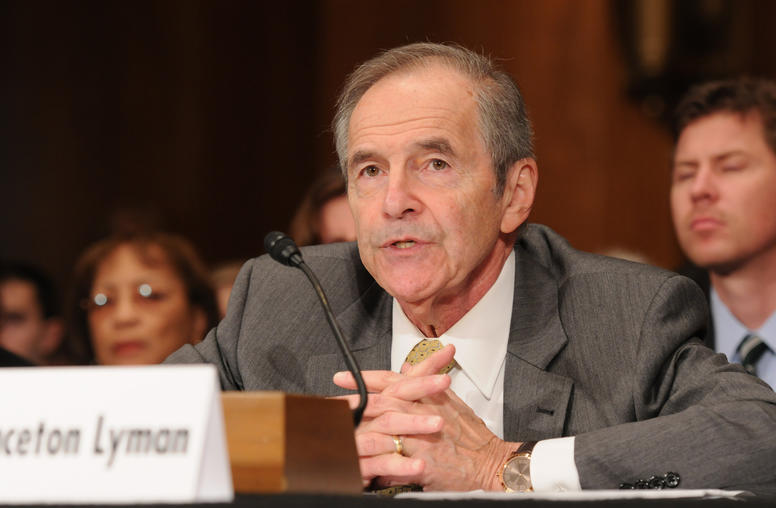
The Questionable Case for Easing Sudan Sanctions
Amb. Princeton N. Lyman testified before the House Foreign Affairs Subcommittee on Africa, Global Health, Global Human Rights & International Organizations
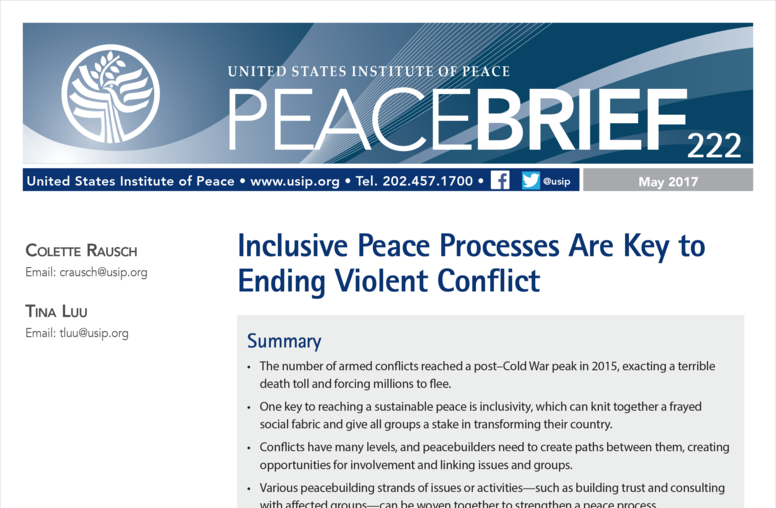
Inclusive Peace Processes Are Key to Ending Violent Conflict
Violent conflict, refugee flows, and internal displacements present international policymakers and practitioners today with unprecedented challenges. Tackling these problems requires not only signed peace agreements but also sustainable peace. It is not enough to bring armed actors to the negotiating table, however. To be effective, the peace process needs to be inclusive and participatory. But what constitutes inclusive participation, and how can peacemakers and peacebuilders achieve it in their own, very different societies? Drawing on discussions in a public forum held in early 2017, this Peace Brief looks at the elements of peacebuilding and explains how critical inclusive participation is to that process.
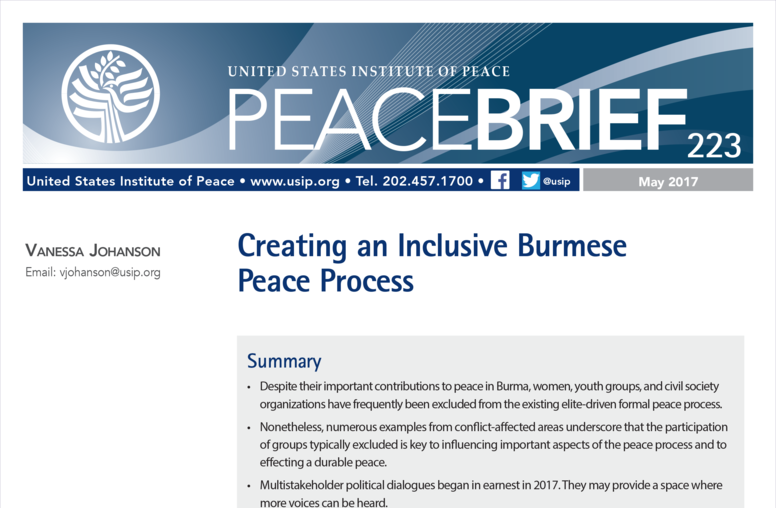
Creating an Inclusive Burmese Peace Process
Burma's peace process reached a milestone with the October 2015 signing of the Nationwide Ceasefire Agreement. The Aung San Suu Kyi government, the most democratic in living memory, has prioritized the peace process; however, many women's and youth groups and other civil society organizations have been marginalized during the negotiations, their voices on important topics silenced in favor of elite input. As a result, a parallel track of activism aimed toward peacebuilding outside the formal structure has developed. The international community should support both tracks while continuing to urge the formal inclusion of marginal groups in the main process.
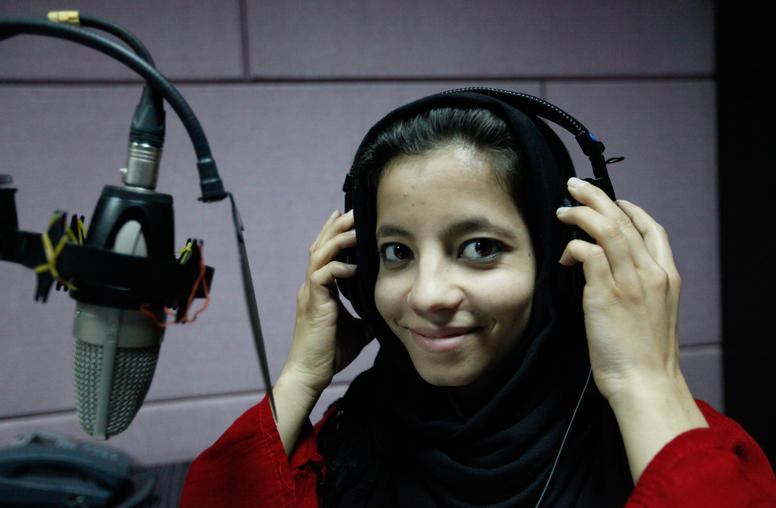
U.S. Democracy Assistance
USIP Board Chair, Stephen J. Hadley, testimony on U.S. democracy assistance before the State, Foreign Operations, and Related Programs Subcommittee of the Committee on Appropriations, of the United States Senate on Tuesday, May 9, 2017.
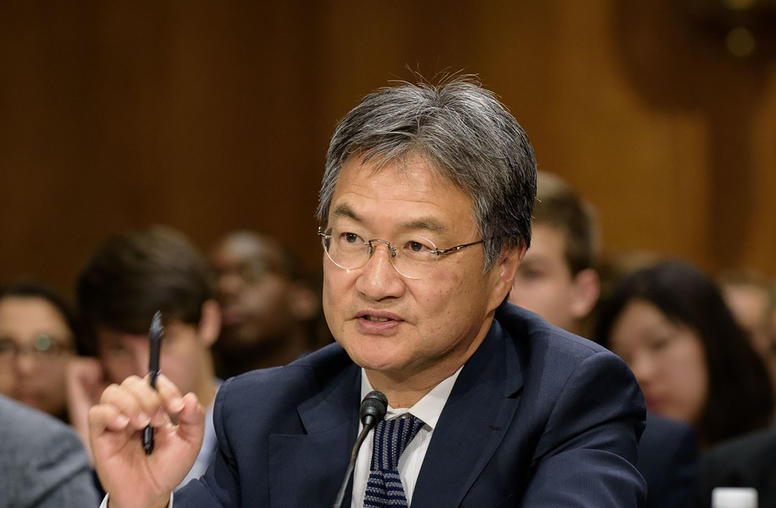
Next Steps on U.S. Policy Toward North Korea
Subcommittee Chairman Gardner, Ranking Member Markey and members of the Subcommittee, thank you for the opportunity to testify this morning on “Next Steps on U.S. Policy Toward North Korea.” I am a Senior Advisor at the United States Institute of Peace, although the views expressed here are my own. USIP was established by Congress over 30 years ago as an independent, national institute to prevent and resolve violent conflicts abroad, in accordance with U.S. national interests and values.

Frank Aum on the North Korea Summit
Just days out from the historic U.S. – North Korea Summit, Frank Aum reflects on pitfalls that previous administrations struggled with, and shares his thoughts about the Trump administration’s approac

Scott Worden on the Cease-Fire in Afghanistan
A temporary cease-fire between the Afghan government and the Taliban to mark the end of Ramadan may offer an opportunity to pursue a more ambitious political solution to end the conflict in Afghanistan, says USIP’s Scott Worden. While there is a chance that the cease-fire—the first since the war began in 2001—will be fleeting, as cease-fires are fragile by nature, it is an important trust-building measure. Combined with Afghanistan’s neighbors recently expressing their desire for an end to the stalemate, the cease-fire could be the first step to a more enduring peace.
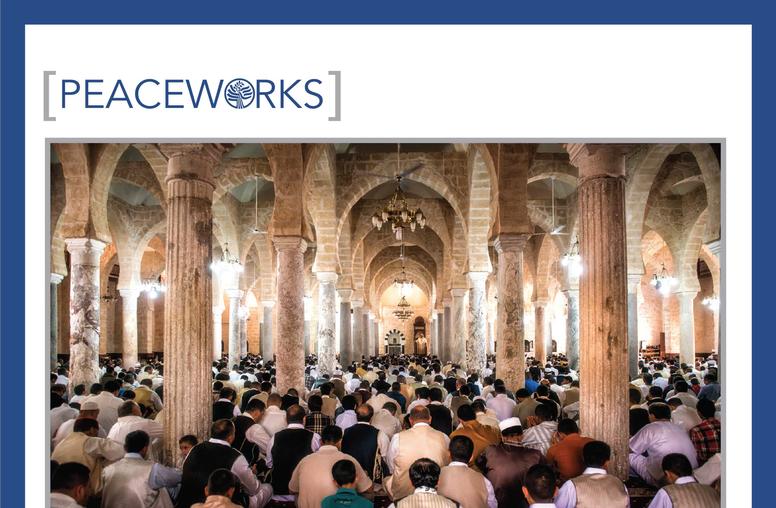
Libya’s Religious Sector and Peacebuilding Efforts (Arabic)
التقرير الماثل هو عصارة استبيانين أُجْرِيا في ليبيا خلال عامي 2014 و2016. والغاية منه سَبْرُ أغوار القطاع الديني في ليبيا ورصد تأثيره في الحكم والمجتمع. وقد استندت عملية استخلاص نتائج هذا التقرير إلى الجهود البحثية التي أجراها فريق من الباحثين المحليين الخبراء بالشأن الليبي. وترسم هذه النتائج خريطة لأهم التوجهات الدينية والمؤسسات الدينية والجهات الدينية الفاعلة في ليبيا، وترصد منظور الليبيين لمساهمة القطاع الديني في بناء السلام وتعزيز العدالة والديمقراطية.
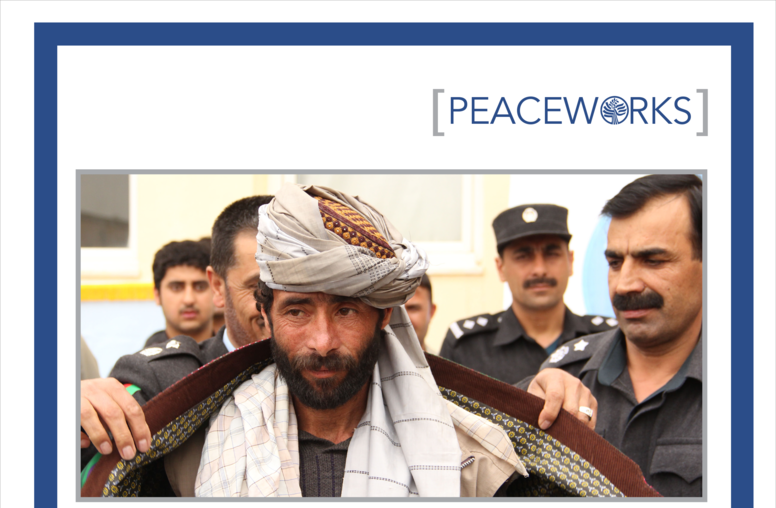
A Negotiated End to the Afghan Conflict
Despite widespread recognition that the only way toward ending the Taliban insurgency in Afghanistan is a negotiated settlement, understanding of the Taliban’s thinking on the subject is remarkably scant. This report attempts to fill this gap by drawing on face-to-face interviews with Taliban foot soldiers, field commanders, and supporters to better understand the movement’s views on why they are fighting, what issues are negotiable, whether they have faith in negotiation as a way to peace, and what a peace process might look like.

Steve Hege on Colombia’s Election
Following a peaceful run-off election in Colombia, Steve Hege shares his analysis on the victory of right-wing candidate Ivan Duque over leftist Gustavo Petro. At the top of Duque’s agenda, according to Hege, will be amending the peace accord with the FARC, resuming more aggressive drug eradication programs, increasing security, and strengthening the U.S.-Colombia relationship.